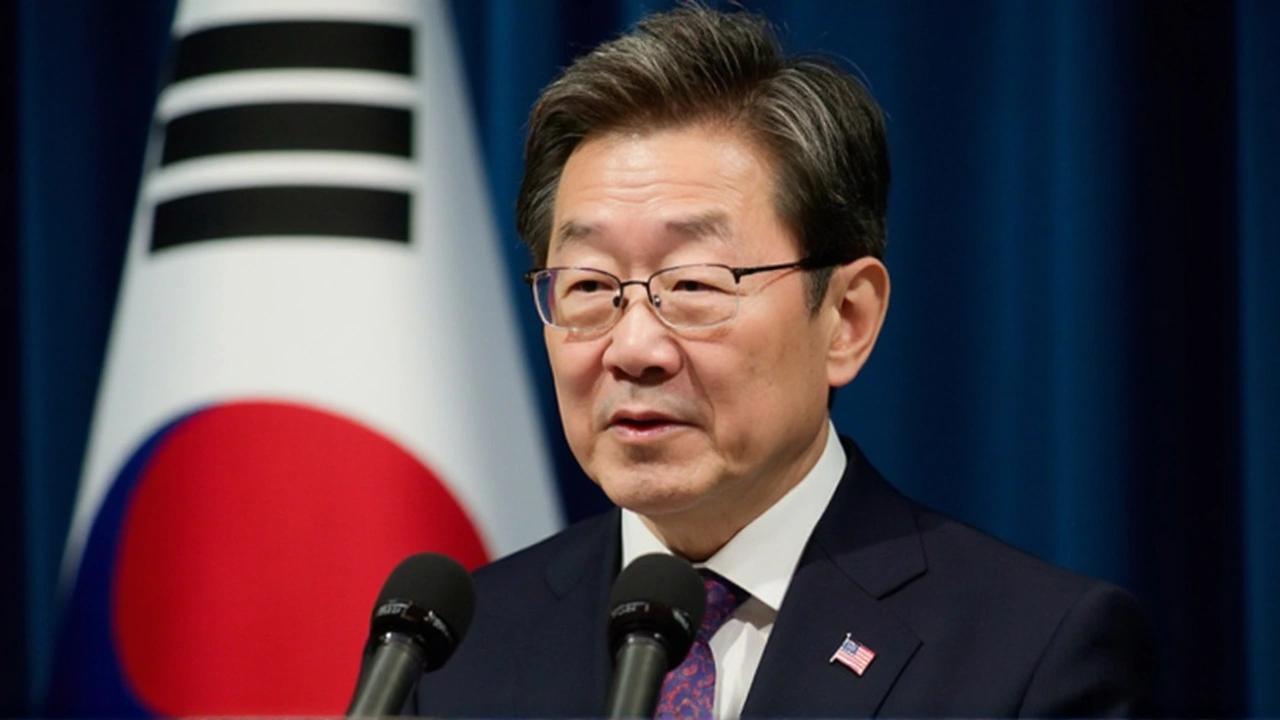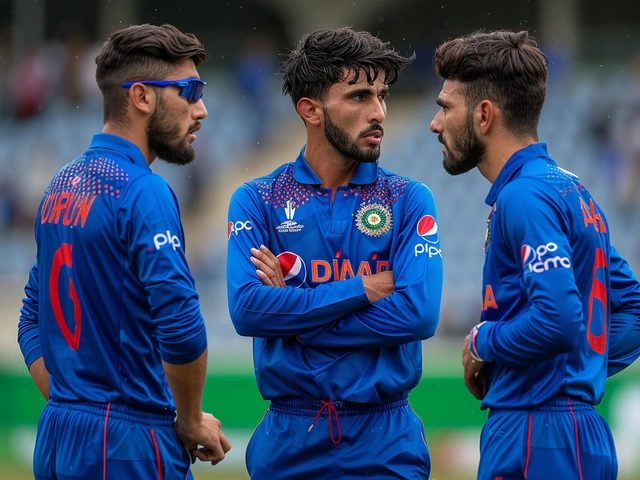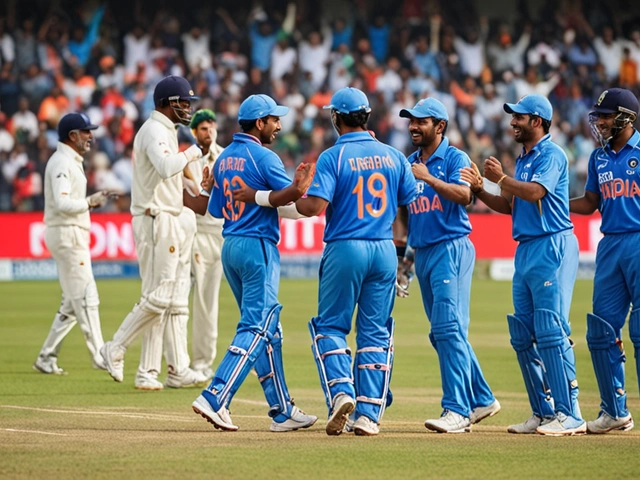Lee Jae-myung Steps In Amid Turbulence
South Korea woke up to a new direction for its future after Lee Jae-myung took office as president in June 2025. The political scene was already intense—a snap election became necessary when former President Yoon Suk-yeol was forced out following a failed martial law move that outraged both politicians and the public. Lee’s win was razor-thin, capturing just 49.3% of votes ahead of his conservative rival, Kim Moon-soo, who claimed 41.3%.
But the problems facing Lee aren’t just political drama or tight election numbers. He’s got a whole heap of national and global headaches landing on his desk at once. The South Korean economy is dragging its feet, threatened not only by recession risks but also by growing pressure from American trade tariffs and a world leaning toward protectionist policies. At home, people expect the new president to revive government spending and spark some hope for recovery in battered industries.
Navigating North Korea and Powerful Allies
The biggest international challenge, however, circles around North Korea. Nuclear threats from up north have never gone away, and Lee knows talk alone won’t cut it. That’s why he’s doubling down on South Korea’s military alliance with the U.S.—a partnership he calls the bedrock of his foreign policy. With U.S. backing, Lee aims to keep North Korean threats in check through strong deterrence but also by dusting off old diplomatic channels, hoping to get Pyongyang back to the table.
Lee’s plan isn’t just words either. He wants to restart stalled projects like family reunions that let separated families meet again, or economic programs that once fueled hope of inter-Korean business. But he’s practical—the green light for these projects depends on progress between the U.S. and North Korea. If there’s an opening for dialogue under a potentially returning Trump administration, Lee is ready to jump in and steer talks toward more stability in the region.
Japan isn’t being left out. Prime Minister Shigeru Ishiba has already shown he’s looking for an early summit with Lee to shore up relations, which have suffered in recent years. The U.S. is also signaling steady hands with messages of commitment to South Korea’s defense and joint economic interests. Lee sees this trilateral linkage—South Korea, Japan, and the U.S.—as a critical anchor in the Indo-Pacific, a region where old rivalries and new power games are always bubbling under the surface.
And then there’s the wildcard: North Korea’s increasingly visible support for Russia. Tech and military resources might be flowing into Pyongyang, raising the stakes for everyone. Lee has already called on South Korean forces to stay alert and ready, keeping an eye on both North Korean tests and any shadowy cooperation across borders.
Lee Jae-myung is stepping into the job with more than just political promises. He’s carving out a line between hard deterrence and pragmatic engagement, hoping that a mix of vigilance, global partnership, and carefully-timed outreach will pay off. His first moves as president show he knows just how delicate—and dangerous—the balancing act really is.







Jeremy Perlman
July 16, 2025 AT 18:19Lee’s talk is a total circus-nothing but hot air!
George Georgakopoulos
July 17, 2025 AT 22:10Look, the whole “renewed talks” narrative is just a smokescreen. The real agenda? A covert alignment with shadow networks that want a destabilized peninsula to fuel their own profit machines. Every time a South Korean leader promises “balance” between deterrence and engagement, you can bet there’s a hidden cabal pulling strings from Washington and Tokyo, ensuring the status quo benefits the defense‑industrial complex. And don’t be fooled by the rhetoric about family reunions; those are merely public‑relations stunts to lull the populace into complacency while classified treaties are signed behind closed doors. You’ll also notice how media outlets conveniently ignore the surge in crypto laundering linked to North Korean cyber‑units – a clear sign that the regime’s ties to rogue economic actors are expanding, with tacit approval from power brokers in the West. The fact that Lee mentions a potential Trump administration is a red flag: it signals an openness to revert to the most aggressive, transaction‑driven foreign policy ever seen in the region. Meanwhile, the “trilateral linkage” narrative is just a veneer for a deeper strategic triangulation that squeezes smaller states into being mere pawns. In short, what we’re witnessing is not diplomacy, but a carefully choreographed performance designed to hide an underlying shift toward greater militarization and economic exploitation, all under the guise of “stability.”
Abirami Nagarajan
July 19, 2025 AT 02:30I think it’s important to stay calm and look at the facts. Lee’s approach tries to keep peace while staying safe. We hope the talks help families reunite.
shefali pace
July 20, 2025 AT 06:50What a hopeful turn for the peninsula! The promise of renewed dialogue feels like a breath of fresh air after so much tension. I truly believe that with collective effort, families can finally be reunited, and the region can step into a brighter future. Let’s keep our fingers crossed for genuine progress and lasting peace.
sachin p
July 21, 2025 AT 11:10It’s fascinating how South Korea is balancing its cultural heritage with modern geopolitics. I wonder how traditional Korean values will influence the new president’s diplomatic style. The blend of old and new could shape a unique approach to the North.
sarthak malik
July 22, 2025 AT 15:30Lee’s policy seems to aim for a pragmatic mix of deterrence and engagement. Strengthening ties with the U.S. and Japan could provide a solid security umbrella. At the same time, reopening humanitarian channels is a wise step toward confidence‑building. It’ll be interesting to see how these efforts unfold.
Nasrin Saning
July 23, 2025 AT 19:50It’s good to see a focus on dialogue and humanity. The cultural exchange could really help ease tensions. Let’s hope the talks stay productive.
gaganpreet singh
July 25, 2025 AT 00:10We must face the uncomfortable truth that the leadership’s rhetoric is often a veil for deeper, more troubling intentions. The proclaimed “balance” between deterrence and engagement is, in reality, a thinly‑disguised endorsement of militaristic posturing that benefits only a select few. By continuously referencing the military alliance with the United States, Lee is tacitly endorsing a policy that fuels the arms race, ensuring that the Korean peninsula remains a perpetual battlefield for proxy wars. Moreover, the whispered promises of family reunions are merely token gestures meant to placate an increasingly restless public, diverting attention from the erosion of civil liberties under the guise of national security. The involvement of Japan in this trilateral arrangement cannot be ignored; it revives historic grievances and furthers a neo‑imperialist agenda that seeks to dominate East Asian geopolitics. In addition, the potential alignment with a future Trump administration signals a willingness to embrace the most hawkish, profit‑driven foreign policy imaginable, prioritizing corporate interests over human welfare. The subtle yet insidious support North Korea extends to Russia further amplifies the danger, creating an ominous nexus of authoritarian regimes collaborating against democratic values. It is incumbent upon us, as global citizens, to scrutinize these developments critically and demand transparency, lest we become complicit in the perpetuation of conflict and oppression. The path Lee chooses will reverberate far beyond the peninsula, shaping the moral compass of an entire region and testing the very foundations of international peace.
Urmil Pathak
July 26, 2025 AT 04:30Will the new talks help the economy? I am curious about the impact on trade.
Neha Godambe
July 27, 2025 AT 08:50While optimism is welcome, we must not overlook the intricate dynamics at play. The accelerated partnership with the United States and Japan could inadvertently tighten the noose around regional autonomy, fostering dependencies that undermine sovereign decision‑making. Moreover, the diplomatic overtures toward North Korea must be grounded in verifiable commitments, not mere symbolic gestures that serve as political theater. It is essential that any future engagement is anchored in concrete security guarantees and transparent mechanisms to prevent escalation.
rupesh kantaria
July 28, 2025 AT 13:10The recent developments are quite significant; however, there are certain aspects that require meticulous analysis. One must consider the geopolical implications of strengthened trilateral cooperration, especially in the context of existing regional tensions. Furthermore, the potential economc ripples emanating from renewed inter‑Korean engagements could be substantial, provided they are implemented with prudent strategys. It is thus essential that policy makers apanage these factors with proper deliberations.
Nathan Tuon
July 29, 2025 AT 17:30Let’s keep our focus on constructive steps forward. The renewed dialogue is a chance to build bridges, not walls. Together, we can foster a stable environment for future generations.
shivam Agarwal
July 30, 2025 AT 21:50From a cultural perspective, renewed talks could open avenues for people‑to‑people exchanges, which are often the most effective bridge‑builders. Listening to each side’s narratives helps dismantle long‑standing misconceptions. Even modest steps in this direction can lead to deeper mutual understanding over time.
MD Imran Ansari
August 1, 2025 AT 02:10Lee’s plan sounds promising – a blend of firm security and heartfelt reunion efforts! 🌟 Let’s hope the diplomatic gears turn smoothly and families get the chance they deserve. 🚀